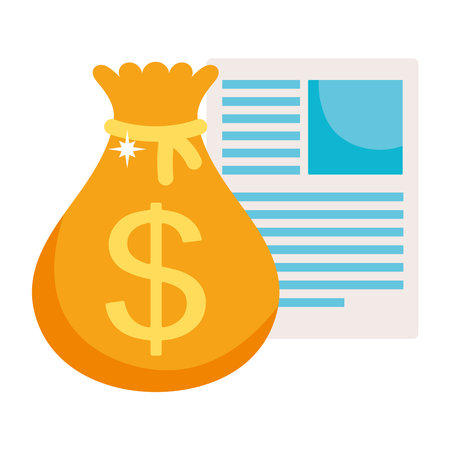1. Introduction: Understanding Key Insurance Types for Businesses
Running a business in the United States comes with many responsibilities and risks. Whether you own a small local shop or a large company, unexpected events like fires, storms, or even temporary closures can have a big impact on your operations and finances. That’s why having the right insurance coverage is so important. Two of the most essential types of insurance for businesses are Business Interruption Insurance and Property Insurance.
Many business owners know they need insurance, but it’s easy to get confused about what each type covers and why both might be necessary. Understanding the differences between Business Interruption Insurance and Property Insurance helps you protect your business not just from physical damage, but also from income loss during tough times.
Why Is Insurance Crucial for Businesses in the U.S.?
The United States has a dynamic business environment, but it also faces challenges like natural disasters, theft, and accidents. Insurance helps companies recover faster when things go wrong and gives peace of mind to both owners and employees. Having the right coverage can even be required by law or by lenders if you have business loans or leases.
Key Differences at a Glance
| Type of Coverage | Main Purpose | What It Protects |
|---|---|---|
| Property Insurance | Covers physical damage to your property | Buildings, equipment, inventory, furniture |
| Business Interruption Insurance | Covers lost income when your business can’t operate due to a covered event | Lost revenue, ongoing expenses (like rent and payroll), temporary relocation costs |
Understanding Your Risks Means Better Protection
No two businesses are exactly alike, which means their insurance needs are different too. By learning about these key types of insurance, you can make smarter decisions that help keep your business running—no matter what happens.
2. What Is Property Insurance?
Property insurance is a type of coverage that helps protect your business’s physical assets from unexpected events like fire, theft, vandalism, or certain natural disasters. In the U.S., most businesses—whether you own a restaurant, retail shop, or manufacturing facility—carry property insurance as a foundation of their risk management plan.
What Does Property Insurance Typically Cover?
Property insurance policies usually cover the following items:
| Asset | Covered Events | Examples |
|---|---|---|
| Buildings | Fire, storms, vandalism, theft | The actual structure where your business operates (office building, warehouse, storefront) |
| Equipment | Fire, theft, accidental damage | Computers, machinery, kitchen appliances in a restaurant, POS systems in a store |
| Inventory | Theft, fire, water damage | Products for sale in retail stores, raw materials in factories, food stock in restaurants |
| Furniture & Fixtures | Vandalism, fire, accidental damage | Desks, chairs, display shelves in offices and shops |
| Outdoor Signage (sometimes optional) | Storm damage, vandalism | Main sign displaying your business name on the property exterior |
Real-World Examples for American Businesses
- A retail store: If a fire damages your storefront and destroys merchandise and shelving units, property insurance can help pay for repairs and replacement of lost inventory.
- A tech company: After a break-in where computers and servers are stolen from your office space, property insurance would typically cover the cost to replace the stolen equipment.
- A restaurant: If vandals break windows and damage kitchen appliances overnight, property insurance helps cover repair costs and replaces broken equipment.
What Isn’t Covered?
It’s important to know that standard property insurance usually does not cover flooding or earthquakes unless you purchase specific add-ons. Also, it doesn’t cover losses related to business interruptions—that’s where Business Interruption Insurance comes into play. Property insurance focuses on repairing or replacing tangible items damaged by covered events.
![]()
3. What Is Business Interruption Insurance?
Business interruption insurance is a type of coverage designed to help businesses recover financially if they are forced to temporarily close due to a covered event, like a fire, natural disaster, or other unexpected incident. Unlike property insurance—which covers physical damage to your building or equipment—business interruption insurance focuses on the income and operating expenses you lose during the downtime.
How Business Interruption Insurance Works
If your business experiences an event that makes it impossible to operate (for example, a major storm damages your building), business interruption insurance steps in to help cover:
- Lost Revenue: The money your business would have earned if it hadn’t been interrupted.
- Fixed Operating Expenses: Ongoing costs like rent, payroll, utilities, and loan payments—even when your business isn’t making money.
- Temporary Relocation Costs: If you need to move to a temporary location, some policies can help cover those extra expenses.
Typical Coverage Provided by Business Interruption Insurance
| Coverage Area | Description |
|---|---|
| Lost Income | Covers net profits you would have earned during the closure period. |
| Ongoing Expenses | Pays for fixed costs like rent, payroll, and utilities. |
| Relocation Costs | Assists with expenses for moving operations to a temporary location. |
| Taxes & Loan Payments | Covers necessary payments even if business activity stops. |
| Civil Authority Orders | Covers lost income if government actions prevent access to your premises due to a covered event nearby. |
Key Points to Remember:
- Business interruption insurance only kicks in when a covered peril under your property insurance policy occurs (such as fire or hurricane).
- This coverage does not protect against all interruptions—events like pandemics or utility failures may not be included unless specifically added.
- The goal is to put your business in the same financial position it would have been if the loss hadn’t happened.
4. Key Differences Between Property Insurance and Business Interruption Insurance
Understanding the differences between property insurance and business interruption insurance is essential for US business owners who want to protect their operations fully. While these two types of insurance often go hand-in-hand, they cover very different risks and scenarios.
Coverage Scope
Property insurance primarily protects the physical assets of your business, such as buildings, equipment, inventory, and furniture, against losses from events like fire, theft, or natural disasters. Business interruption insurance, on the other hand, is designed to cover the loss of income and ongoing expenses if your business operations are halted due to a covered peril.
Comparison Table: Property Insurance vs. Business Interruption Insurance
| Aspect | Property Insurance | Business Interruption Insurance |
|---|---|---|
| What It Covers | Physical assets (buildings, equipment, inventory) | Lost income and operating expenses during downtime |
| Main Purpose | Repairs or replaces damaged property | Keeps cash flow steady while business is closed or disrupted |
| Payout Triggers | Damage or loss caused by covered perils (e.g., fire) | Business closure due to a covered property loss event |
| Payout Use | Restoring or replacing property | Payroll, rent, utilities, loan payments, lost profits |
| Example Scenario | Your warehouse burns down in a fire; insurance pays for repairs. | Your bakery closes for repairs after a fire; insurance covers lost sales and wages. |
How They Complement Each Other: Real-Life Scenarios
Imagine a local restaurant in Texas suffers severe storm damage that destroys its kitchen. Property insurance would pay to repair or replace the kitchen equipment and building structure. However, while repairs are underway, the restaurant can’t serve customers—this is where business interruption insurance steps in. It covers lost revenue and helps pay employee wages and rent during the downtime.
This combination ensures that after a disaster, you’re not only able to rebuild but also keep your business afloat financially until you reopen. Most US business owners find having both policies crucial for comprehensive protection against unexpected disruptions.
5. Which Coverage Does Your Business Need?
Choosing between Business Interruption Insurance and Property Insurance can feel overwhelming, especially with so many options out there. Here’s some guidance to help American business owners make smart choices about which insurance fits their needs.
Assess Your Business Risks
The first step is understanding what risks your business faces. Ask yourself these questions:
- What kind of property does my business own or lease?
- Could a fire, storm, or theft stop my operations?
- How long could my business survive if we had to close temporarily?
- Do I have the cash flow to cover ongoing expenses if revenue stops?
Key Differences at a Glance
| Coverage Type | What It Protects | Typical Scenario |
|---|---|---|
| Property Insurance | Physical assets (building, equipment, inventory) | A fire damages your office and computers |
| Business Interruption Insurance | Lost income & ongoing expenses during closure after a covered event | You can’t operate for weeks while repairs are made after a flood |
Tips for American Entrepreneurs
- Evaluate Local Risks: If you’re in a hurricane or wildfire-prone state, property insurance is crucial. If your area is known for extended power outages or severe weather, business interruption coverage is also important.
- Check Lease Agreements: Many commercial leases in the U.S. require tenants to carry both types of insurance. Make sure you know what your landlord expects.
- Consider Cash Flow: Small businesses often don’t have enough savings to cover payroll and bills if they’re forced to close unexpectedly. Business interruption insurance helps bridge that gap.
- Talk to an Agent: An experienced insurance agent can help you customize coverage based on your industry, location, and risk profile.
- Bundle for Savings: Some insurers offer package deals that include both property and business interruption coverage—ask about bundle discounts.
Your Next Steps
The best way to protect your business is to identify your greatest risks and get the right coverage for those scenarios. Take time to review your operations and talk with an insurance professional who understands the unique challenges American entrepreneurs face.


